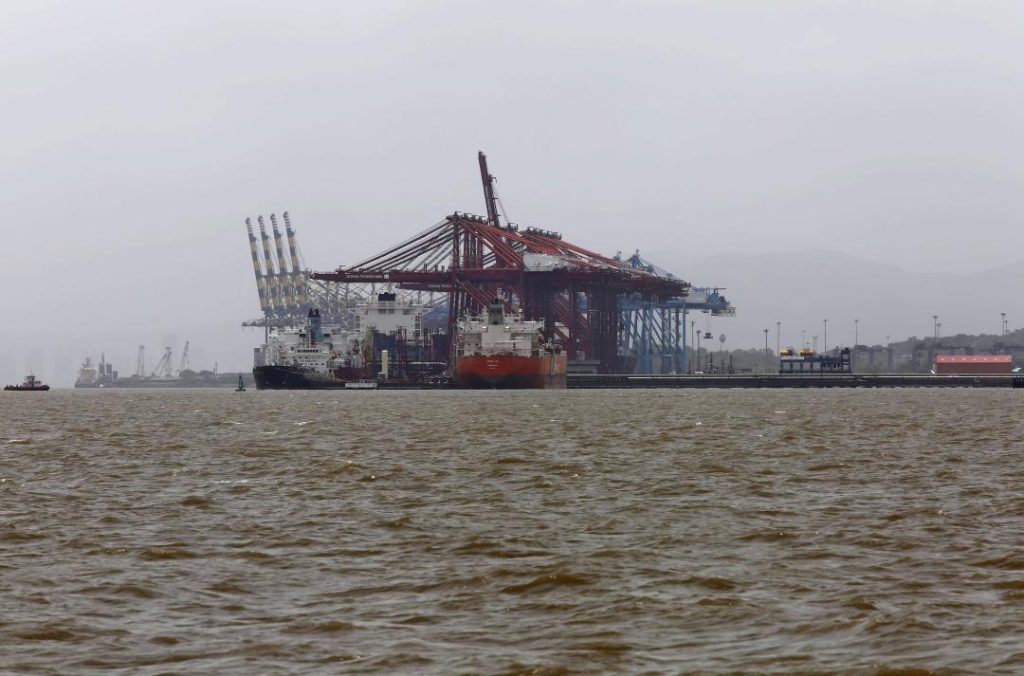
How was ₹800-cr scam undertaken by Tata firm & India’s largest container port’s ex-staff?
In a shocking revelation, the Central Bureau of Investigation (CBI) has uncovered a massive scam of ₹800 crore at the Jawaharlal Nehru Port (JNPT), India’s largest container port, and Tata Consulting Engineers (TCE), a leading engineering consultancy firm. The scam involved former staff of TCE and JNPT, who allegedly manipulated the dredging project to cause significant financial losses to the port authorities.
The CBI has found that the officials, in a deliberate attempt to cheat the system, chose a deeper 15-meter vessel draft instead of the approved 14-meter draft, resulting in a loss of ₹1,163 crore. Moreover, they opted for a single rate for dredging different rock types, leading to an additional loss of ₹557 crore. To make matters worse, the contractors undertook dredging for excess width, causing a further loss of ₹964 crore.
The sheer scale of the scam is staggering, with cumulative losses exceeding ₹4,200 crore. The CBI has initiated investigations and is likely to summon key officials and contractors involved in the project.
So, how did this massive scam come to light? Let’s delve deeper into the details.
The Dredging Project: A Complex Affair
The Jawaharlal Nehru Port Trust (JNPT) is one of India’s busiest ports, handling a significant volume of cargo every year. To maintain its operational efficiency, the port authorities embarked on a massive dredging project to deepen the draft of the port’s channels. The project aimed to increase the port’s capacity and reduce congestion.
Tata Consulting Engineers (TCE), a prominent engineering consultancy firm, was awarded the contract to oversee the dredging project. The company was responsible for designing the project, procuring equipment, and supervising the contractors.
The Scam Unfolds
However, instead of following the approved design and specifications, the officials at TCE and JNPT allegedly manipulated the project to suit their interests. They chose a deeper 15-meter vessel draft instead of the approved 14-meter draft, which resulted in significant additional expenses for the port authorities.
Moreover, the officials opted for a single rate for dredging different rock types, which is not feasible or economical. This led to a loss of ₹557 crore, as the contractors were overpaid for their services.
To add insult to injury, the contractors undertook dredging for excess width, causing a loss of ₹964 crore. This means that the contractors dug up more area than required, resulting in unnecessary expenses for the port authorities.
The CBI Investigation
The Central Bureau of Investigation (CBI) has taken cognizance of the scam and launched an investigation. The agency has found that the officials at TCE and JNPT were complicit in the scam, and that the contractors were aware of the irregularities.
The CBI has also discovered that the officials at TCE and JNPT had a vested interest in the project, and that they had received kickbacks from the contractors. The agency has seized documents and records related to the project, and is likely to summon key officials and contractors for questioning.
The Aftermath
The scam has sent shockwaves throughout the industry, with many questioning the competence and integrity of the officials involved. The incident highlights the need for strict measures to prevent such scams in the future.
The CBI’s investigation is ongoing, and it is expected to reveal more details about the scam in the coming days. The agency has already issued summons to key officials and contractors, and is likely to file chargesheets soon.
Conclusion
The ₹800-crore scam at the Jawaharlal Nehru Port and Tata Consulting Engineers is a stark reminder of the need for transparency and accountability in public projects. The incident highlights the risks of corruption and the importance of strict compliance with project specifications.
The CBI’s investigation is a welcome move, and we can only hope that justice is served to those involved in the scam. The incident serves as a wake-up call for the industry, and we must ensure that such scams are prevented in the future.
Source:






